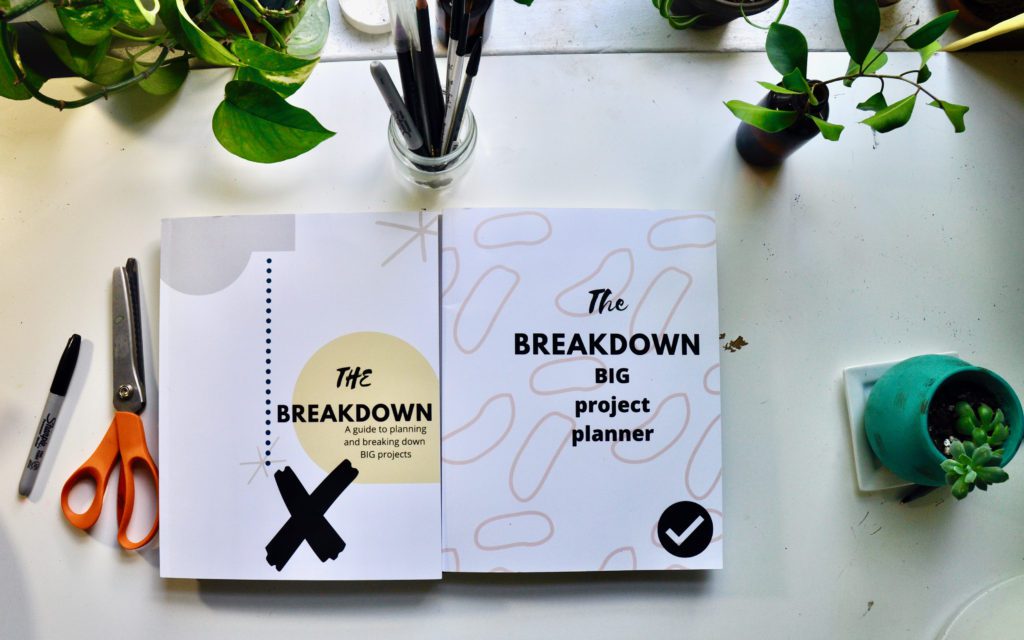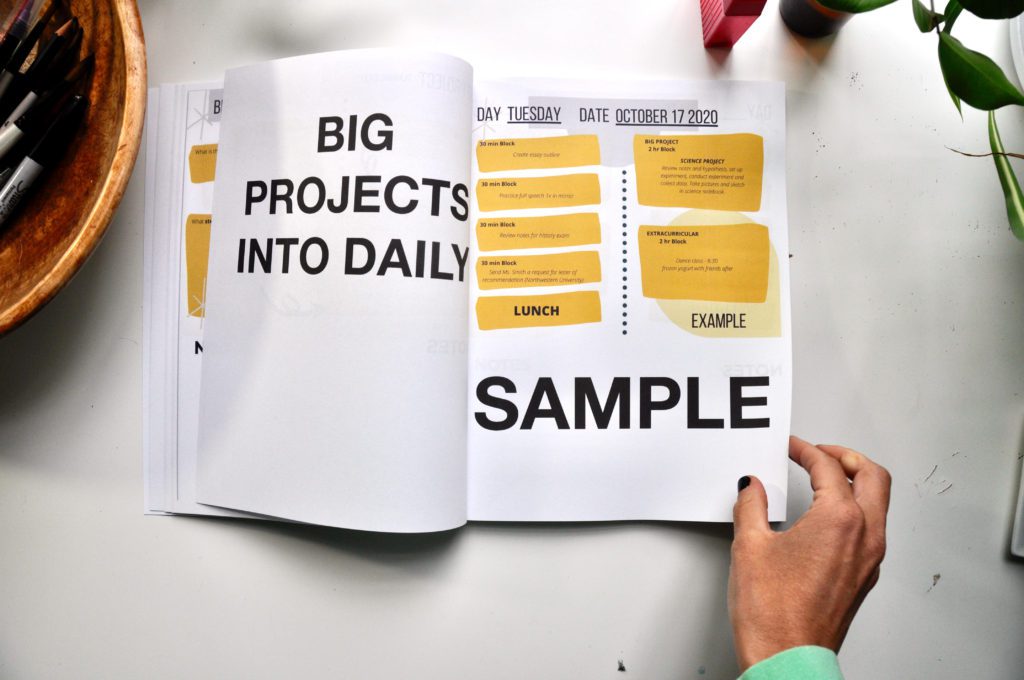How to Get it All Done

It’s the start of a new school year, and while all of the students are new, the things that they’re nervous and concerned about, aren’t.
At the start of each year as students introduce themselves, they also share goals and things that they’re feeling nervous or anxious about. Year after year, the responses are the same.
High School students are nervous about:
- Completing college applications
- balancing their class workload, with life, and college applications
The concerns are the same year over year, as this is the stage of life that they’re in, and it’s because while we put a lot of emphasis on due dates, deadlines, and being prepared for college, we don’t really teach you how to do to anything of those things.
- We don’t teach you how to break big projects down into actionable tasks.
- We don’t teach you to create a plan so that you’re more likely to be able to meet deadlines and due dates.
- We don’t teach you how to prioritize.
All of the above are skills that you’ll need to help you through your final years of high school, and you’ll need them for the rest of your life. Understanding how to manage projects has been something that has followed me through many career and life changes.
5 Tips for planning your week
1. At the start of each week, review what you need to do for all of your classes, while also keeping life in mind. Aka extra events, practice, and the like. Take each of those things and write down what day you’re going to do them.
2. While planning your week, make sure that you break large projects into small manageable tasks. For example, don’t write things like write my art history paper for one day. Instead, you might write…
Monday: Determine my topic for my paper and spend 1 hour researching
Tuesday: Draft an outline for my paper and determine what additional research is needed
Wednesday: Write the first draft of my paper
Thursday: Edit paper and ask for a review
Friday: Finish
3. Try to build your plan so that all of your assignments will be completed by Thursday. This helps to give you some buffer for if things take longer than you planned, or if something extra pops up.
4. Let go of perfection. Sometimes things need to be done. Things can almost always be better (that’s learning), however, perfection can hold us back from progress. It’s almost always better to have something done and submit it, than to have something done that doesn’t seem perfect and not submit it at all.
5. And last, do the most important things first. There likely will be weeks when you can’t get everything done. But if you did the most important things first, you’ll be okay. For example, in this class, you won’t turn in every assignment or exercise. So if you know that you have a really busy week, focus on the assignments that you need to submit.
Introduction to breaking down big projects

Check out the 2 Versions of The Breakdown Planner
The Breakdown: Planner 1
Welcome to The Breakdown. We’re so excited to help you take control of your time and schedule. We believe that having a planner only works if you first understand how to break down tasks and projects into manageable tasks.
140 Page planner, filled with colorful pages that help you learn how to plan. This planner is ideal for high school-aged students as it includes sample project breakdowns related to science fair projects, studying for the SAT’s, college applications, and more.
This planner comes with examples of how to break down tasks, along with formats to do so, and planning pages to cover 1 quarter of the year.
FREE Training Videos: Each planner comes with a link to additional video supports to guide your planning and use of the planner.
Sample project breakdowns
Guides to help breakdown your projects
Break your project into daily tasks
Time estimator sheets
Monthly and daily planning pages
The Breakdown: BIG Project planner Only
Welcome to The Breakdown. We’re so excited to help you take control of your time and schedule. We believe that having a planner only works if you first understand how to break down tasks and projects into manageable tasks.
This BIG Project Breakdown Planner is designed to help you break down your projects into manageable tasks to make sure that you get them done, and avoid feeling overwhelmed.
Includes:
- Sample BIG projects
- BIG project breakdown pages in several designs
- How to Estimate time
- Prioritization Matrix
Go back to this planner each time you have a big project that you want to make sure to complete by a deadline or due date.
This planner is filled with colorful pages and multiple planning layouts.
The planner includes a link to a FREE videos to help guide you through using your planner and other Breakdown tools.
Planning and Motivation
When it comes to not finishing things, it’s often a combination of poor planning, lack of understanding, and an overall lack of motivation for the task at hand.
You have to be motivated to complete what you’re planning, otherwise, no list is going to save you from distraction from a long-term assignment. You might be super excited about the topic (that’s your motivation), but if you’re working to complete a large project, paper, or task that was assigned to you, and you’re not overly interested in, you’re going to have search a bit harder for motivation. Consider, giving yourself a reward when you finish, or if it’s a large project, give yourself mini rewards at important checkpoints along the way.
Try this process for pairing your motivation with a plan
- My motivation for working on ( write the name of the project) this week is: ( circle at least one item from the list)
- competition
- set a goal
- reward by going outside
- interesting to me
- finish it and get it over with
- to use my imagination
- reward with a snack
- reward with free time
- to earn a good grade
- praise from the teacher
- give myself a positive feeling
- to learn something new
- to work with a friend
- to have a feeling of success
- feeling sure of what I am doing
- reward with a game
- reward with physical activity
- to have order
Now that you have a better understanding of what motivates you to complete your project, commit to taking steps forward this week.
2. Three steps that I need to work on (insert name of project) this week are:
Reflect
At the end of the week reflect, by responding to the following questions by circling the response that best fits.
How well did I do? Good OK. Not Good